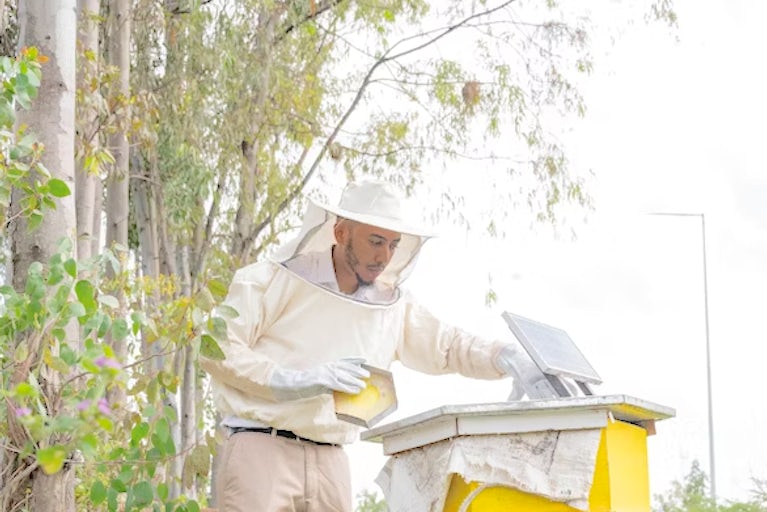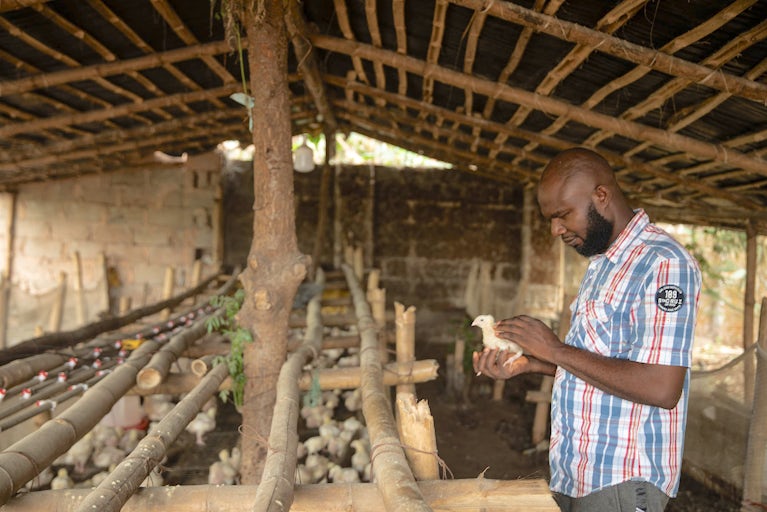- Aajac Colufifa
- Association of Mayors of Senegal
- Association Rurale de Lutte contre le Sida (ARLS)
- Federation of Maize Producers of Saloum (FEPROMAS)
- Laiterie du Berger (LDB)

Senegal

We supply farmers with tools and services to overcome climate challenges, participate in markets and earn more income.

Contact Us
Dr. Daouda Ndao, Interim Country Director
Country Context
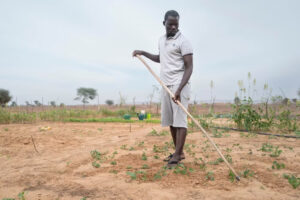
Senegal’s economy is heavily based on agriculture, which employs about 22 percent of the labor force and accounts for a significant portion of rural livelihoods. Although the land is rich in agricultural potential, smallholder farmers struggle with erratic weather patterns, inadequate climate information, limited access to financing and outdated farming methods. Additionally, more than 60 percent of the population is under 25 years old and informal employment is rampant, a result of relatively low education rates and a mismatch between job training and the job market. The International Labour Organization reported that a staggering 95 percent of workers ages 15 to 29 were informally employed in 2019.
Since 2022, the country has contended with an economic slump driven by the global economic slowdown, unfavorable rainfall and the rising cost of goods. Despite being traditionally viewed as one of the most stable countries in Africa, recent political turmoil has triggered violence, and financial hardship persists, with more than 35 percent of the population living below the poverty line. This reality highlights the urgent need for local solutions that secure food stability, create jobs, drive economic growth and support climate resilience in hardworking communities.
Our Response
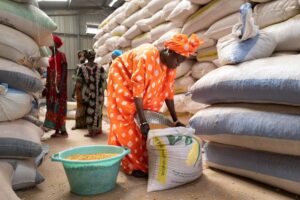
Heifer Senegal is working toward a prosperous world where communities live in harmony and share the resources of a healthy planet. Heifer’s community-led development model is instrumental in fostering this work, empowering community members to establish shared values and goals and work together toward meaningful change and growth.
With this foundation in place, we work alongside strategic partners — including cooperatives, municipalities and technical experts — to offer farming families high-quality seeds, agricultural and business training, support to improve harvest management and processing and climate and market information to improve their productivity and participation in the local agricultural economy.
Our primary objective is helping families achieve a sustainable living income, our measure for the amount of money required for a decent life — including safe shelter, nutritious food, clothing, education and health care — while also reaching additional benchmarks for economic and climate resilience.
Current Value Chains
2007
Year Heifer launched in Senegal
97,013
Household participants in 2024
2,102,794
Household participants to date
The Senegal Signature Program
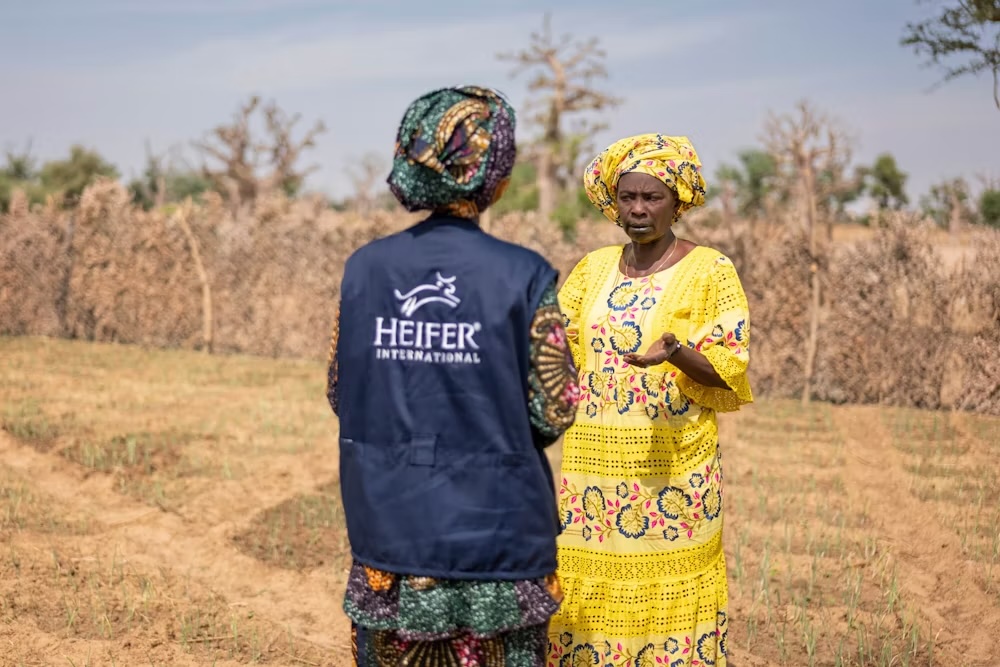
Heifer International’s work is organized at the country level into Signature Programs focused on large-scale, measurable and sustainable impact achieved by building partnerships at all levels. Each program supports farmers through time-bound projects designed to increase their household income.
Building Women and Youth Economic Resilience in the Sahel
Heifer’s Signature Program in Senegal, Building Women and Youth Economic Resilience in the Sahel, targets financial stability for 216,000 households in the Sahel region. With a focus on women and youth, the program amplifies their market competitiveness and participation, enabling them to earn enough money to live a dignified life.
Featured Projects
Climate Services for Increased Resilience and Productivity
Project timeline: 2022–2025
The Climate Services for Increased Resilience and Productivity (CSRP) project works to elevate the resilience of 50,000 families across seven regions by providing access to weather forecasts and improved agricultural practices. Focusing on crops suited for semi-arid conditions, such as millet and groundnut, the project has trained thousands in climate-adaptive farming, established three agricultural cooperatives and facilitated text, voice and radio services to inform farmers of climate and market conditions so they can increase their incomes and improve household nutrition.
Mayors’ Initiative for Sheep Self-Sufficiency
Project timeline: 2022–2027
In partnership with the Association of Mayors of Senegal and the Ministry of Livestock and Animal Production, the Mayors’ Initiative for Sheep Self-Sufficiency (IMAM2) project aims to empower 121,410 sheep farming households in 10 regions to achieve sustainable living incomes by mid-2026. The initiative strengthens the capacity of self-help groups that support women working together to build businesses, provides livestock management instruction, trains community animal health workers and distributes livestock and fodder seeds to establish a strong foundation for increased sheep production, productivity and marketing.
Meliteji Wasu Project
Project timeline: 2023–2028
The Meliteji Wasu (Sahel Dairy) Project — a partnership between Heifer International, Laiterie du Berger and the Mastercard Foundation — plans to revolutionize Senegal’s dairy sector. With a $49 million budget, this five-year venture intends to integrate 600,000 families, primarily youth and women, into sustainable dairy value chains through improved milk production, cooperative development and expanded infrastructure. The project will modernize livestock systems and create 50,000 jobs.
Nutrition Enhancement Project
Project timeline: 2020–2025
The Nutrition Enhancement Project (KAYRA) aims to reduce child and maternal malnutrition among 25,000 vulnerable households in Bounkiling and Sédhiou regions through improved health, nutrition and sanitation. So far, KAYRA has impacted thousands of households by facilitating community-led nutrition trainings and information campaigns, conducting malnutrition screenings, improving access to antenatal care and supporting the production of small ruminants, horticulture and poultry.
Our Partners in Senegal
- Mastercard Foundation
- Ministry of Agriculture, Rural Equipment and Food Sovereignty
- Ministry of Communication, Telecommunications and Digital Economy
- Ministry of Livestock and Animal Production
- Ministry of Women and Family, Gender and Child Protection
- National Nutrition Development Council
- ONG NDEM
- REPMIL
- Sapca-Egas
News and Resources
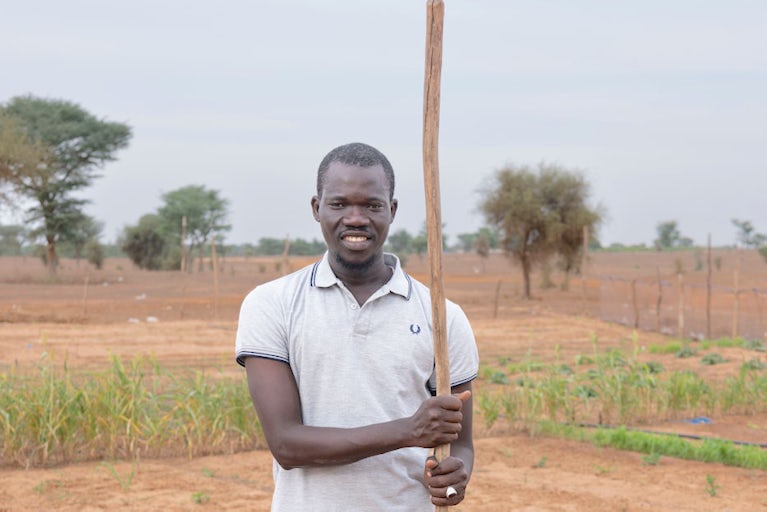
For a Young Man Considering Migration, a Farm Becomes a Foundation
Confronting the dual threats of climate change and unemployment in Senegal’s Sahel region, Ismaila Gning turns to climate-smart agriculture as an essential strategy to mitigate ecological challenges and offer a stable livelihood.
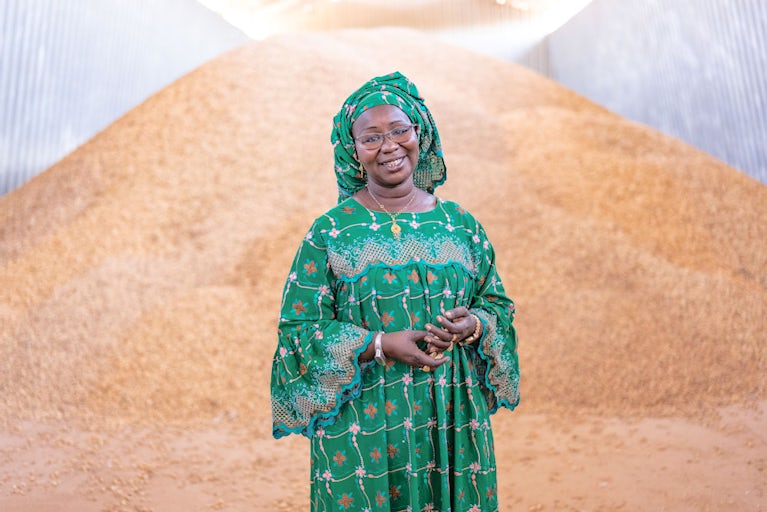
Where Solidarity Reigns Supreme
In a community where togetherness is key, women uplift one another through the practice of Passing on the Gift®.
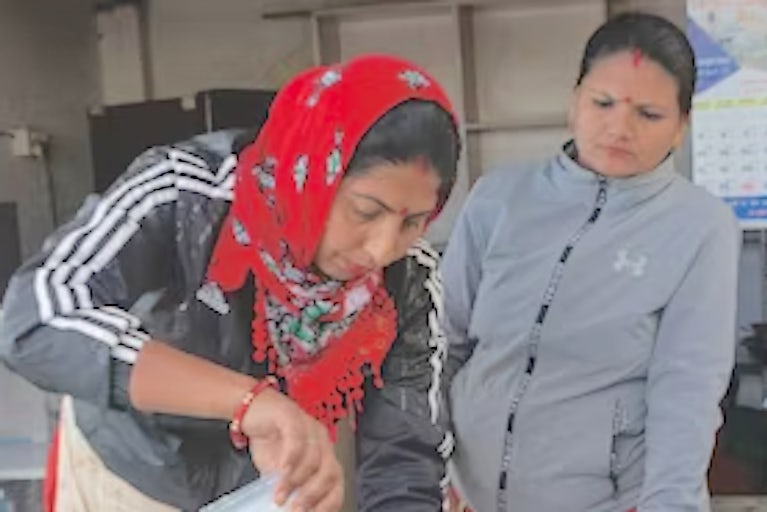
Sustainable Locally Led Development Fact Sheet
This fact sheet explains Heifer’s locally led development approach, defines sustainable locally led development, and discusses why this approach is important.
“I gave up emigration to Europe after three attempts to cross the ocean. With seeds and other services provided by Heifer, my friends and I could harvest many products and earn sufficient income for our families. Today, I am proud being able to stay at home, work and give back to the most vulnerable.”
Nar Diop, Climate Services for Increased Resilience and Productivity (CSRP) Participant

